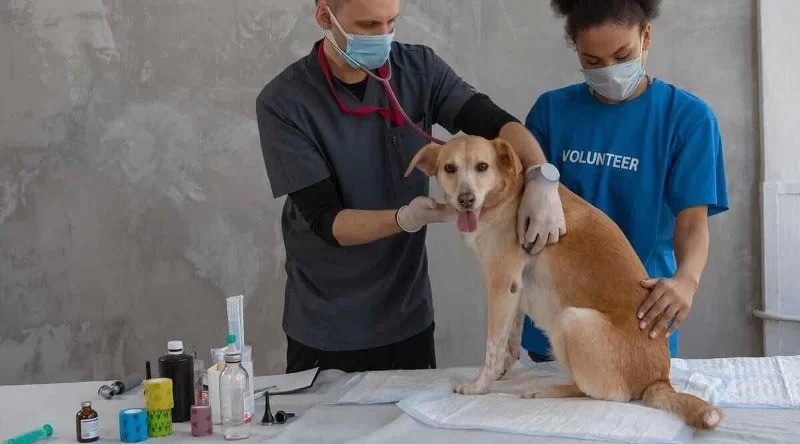How Long Does It Take to Become a Veterinary Surgeon? Your Complete Guide
- understanding-the-role-of-a-veterinary-surgeon - Understanding the Role of a Veterinary Surgeon
- academic-foundation-high-school-to-pre-vet - Academic Foundation: High School to Pre-Vet
- veterinary-school-how-many-years - Veterinary School: How Many Years?
- internships-and-residency-specialization-timeline - Internships and Residency: Specialization Timeline
- real-world-journey-a-students-perspective - Real-World Journey: A Student's Perspective
- factors-that-can-affect-your-timeline - Factors That Can Affect Your Timeline
- is-becoming-a-veterinary-surgeon-worth-the-time - Is Becoming a Veterinary Surgeon Worth the Time?
- start-your-veterinary-surgeon-journey-now - Start Your Veterinary Surgeon Journey Now
1. Understanding the Role of a Veterinary Surgeon
Before diving into how many years to become a veterinary surgeon, it's important to grasp what the job actually entails. A veterinary surgeon performs surgical procedures on animals, ranging from routine spays and neuters to orthopedic surgeries and life-saving emergency operations. It’s a demanding but deeply rewarding profession that combines science, precision, and compassion.
2. Academic Foundation: High School to Pre-Vet
2.1 Setting the Stage Early
The path to becoming a veterinary surgeon begins in high school with a strong foundation in science and math. Biology, chemistry, and even statistics are crucial early on. Students interested in this career often volunteer or work at animal shelters or clinics to build experience.

10 South LaSalle, Suite 2120, Chicago, IL 60603, USA
See Details2.2 Undergraduate Education (3–4 Years)
In most countries like the US and Canada, aspiring veterinary surgeons must first complete a bachelor's degree. This typically takes four years and is focused on pre-veterinary courses such as organic chemistry, animal biology, and microbiology. Some countries, such as the UK or Australia, allow direct entry from high school into a five- to six-year veterinary program.
3. Veterinary School: How Many Years?
3.1 DVM or Equivalent (4–6 Years)
After earning a bachelor’s degree, students apply to veterinary school. In the US, the Doctor of Veterinary Medicine (DVM) program takes another four years. In contrast, combined programs in other regions may take 5–6 years total if entered right after high school.
3.2 Core Curriculum
Vet school combines classroom work with practical clinical experience. Students rotate through internal medicine, surgery, radiology, and more. This is where future veterinary surgeons start to narrow their interests toward surgical specialties.
4. Internships and Residency: Specialization Timeline
4.1 Internship (1 Year)
Post-vet school, many students pursue a 1-year internship to gain hands-on experience, often in a hospital setting. This step is crucial for those wanting to specialize in surgery.
4.2 Residency in Veterinary Surgery (3–4 Years)
To officially become a board-certified veterinary surgeon, a residency is required. This can take another three to four years and includes extensive training in surgical procedures, case management, and academic research.
5. Real-World Journey: A Student's Perspective
Take Jenna’s story for example: She started her undergraduate biology degree at 18, entered vet school at 22, and graduated at 26. After a year of internship and four years of residency, she became a certified veterinary surgeon at 31. That’s 13 years of dedication—but according to Jenna, “every hour was worth it when I saved my first patient with a ruptured spleen.”
6. Factors That Can Affect Your Timeline
6.1 Gap Years and Retakes
Some students take gap years between undergrad and vet school to gain experience or improve test scores. Others may need extra time due to personal circumstances, part-time study, or academic retakes.
6.2 Country-Specific Education Models
The number of years to become a veterinary surgeon can vary by country. In the UK, students can enter a vet program directly from high school, potentially finishing around age 23–24. In the US, the path often takes until age 30 or later.
7. Is Becoming a Veterinary Surgeon Worth the Time?
Absolutely—if you're passionate about animal health and capable of handling the academic and emotional demands. Veterinary surgeons are highly respected, well-compensated, and often experience deep personal fulfillment from their work. Yes, it takes time, but the return is both professional and personal.
8. Start Your Veterinary Surgeon Journey Now
So, how many years to become a veterinary surgeon? On average, between 8 to 13 years, depending on your path and country. But those years are not just a waiting game—they're filled with growth, discovery, and hands-on animal care that builds your expertise.
If you’re serious about becoming a veterinary surgeon, now is the perfect time to take the first step. Research accredited vet programs, plan your academic journey, and explore prep resources that align with your long-term goal. Every journey starts with one decision—make yours today.











